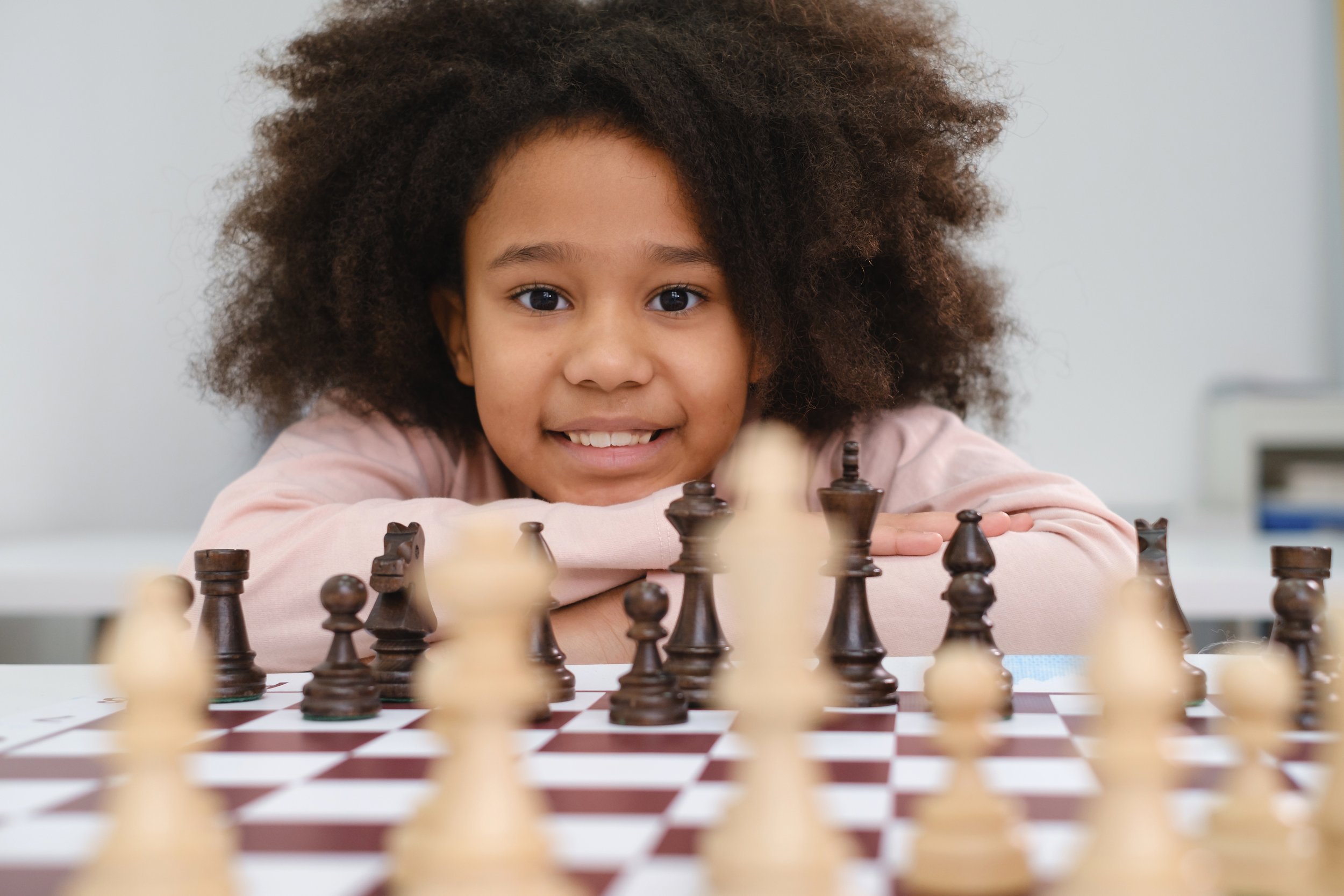The Benefits of Chess
Why choose chess?
While we have made progress, we still have a long way to go to break down the barriers for girls in chess. As of 2022, there is about one woman chess player in competition for every 15 men and only one woman ranked amongst the world's top 100 players. Why?
Girls as young as six are aware of the stereotype that “good chess players are usually boys”, which affects the way girls play. In tournaments, when many girls play against boys who present a strong or moderate challenge, they lose more than they should at their skill level. This is called ‘Stereotype Threat’.
At Chess Girl, we start working with girls from the age of 4, when self-esteem first begins to emerge, as children develop socially and cognitively. By their teenage years, studies show that girls become dramatically less self-assured. Through these various stages, chess can offer a multitude of benefits:
Through this stage, chess can offer a multitude of benefits:
Chess raises the IQ: In a review of the educational benefits of chess, a Venezuelan study showed significant rises in the IQ scores of both boys and girls after four months of chess instruction.
Chess exercises the entire brain: A German study, examining and comparing activity between the left and the right hemispheres of the brain in chess experts, predicted that the left-side of the brain (logic) would be far more active when chess experts were given geometric shapes and chess positions to observe and analyze. The research showed, however, that the right-side of the brain (creativity) was very active as well.
Chess increases creativity: A study showed that a group of middle school students who played chess once a week, for 32 weeks, scored higher in all measures of creativity against other activities, with originality being their biggest area of improvement.
Chess improves memory: A study indicated better memory, improved grades in all subjects and better organizational skills in kids, after consistent and regular exposure to chess.
Chess enhances problem-solving: A study showed that when students in Grade 1 played chess, in addition to their regular math classes, their grades were markedly better (21.46% higher) than the rest of the students that only studied the set math curriculum.
Chess improves reading skills: A study conducted showed definitive results that playing chess caused improved reading ability.
Chess improves concentration: Numerous studies of students in the U.S. and elsewhere have shown time and again that young people’s ability to focus is sharpened with chess.
Chess teaches planning and foresight: Strategy games like chess can promote prefrontal cortex development and help teenagers make better decisions in all areas of life and perhaps keep them from making bad choices.












